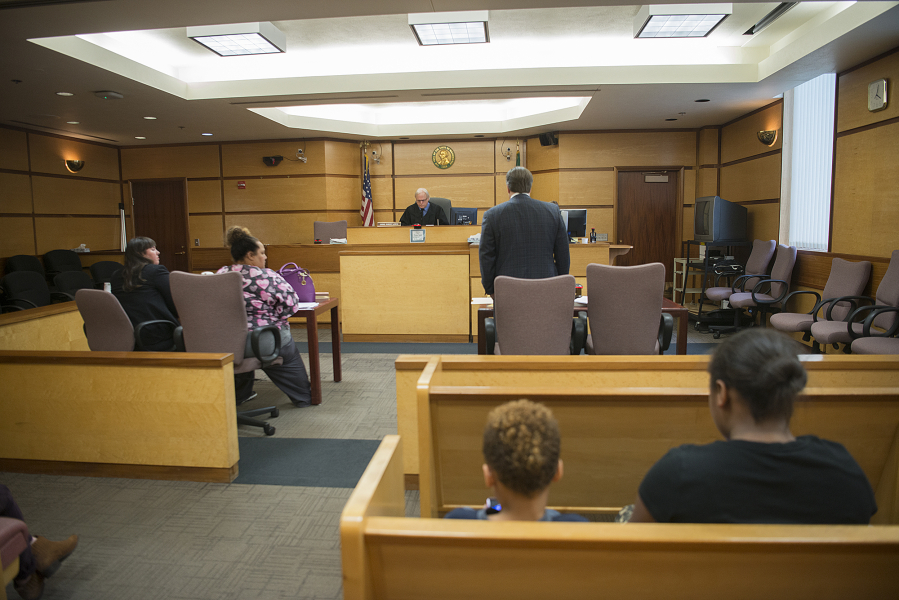Here’s some answers for the security deposit laws in Florida
Here’s some answers for the security deposit laws in Florida
In Florida, many residential rental agreements or leases require a security deposit. Usually a month’s rent, a security deposit is a dollar amount that’s collected by the landlord to protect against property damage due to a tenant’s negligence or carelessness.
When it comes to security deposits, Florida landlords and tenants both have certain basic rights. These rights are specified under Florida landlord-tenant law. Landlords must comply with these laws when handling a tenant’s security deposit.
1. What amount can a landlord ask for a security deposit?
The Florida Security Deposit law doesn’t limit the amount a landlord can charge a tenant for a security deposit. However, the amount should be reasonable.
Local laws can, however, set the cap on the amount a landlord can ask.
2. How should landlords store a tenant’s security deposit in Florida?
Florida rental laws state that a landlord can store a renter’s security deposit in three different ways. First, landlords can post a surety bond for the amount of security deposit. A surety can be used as an alternative to a security deposit.
A surety bond, similar to a security deposit, is a form of insurance that provides a contractual promise. That is, the bond company stands ready to compensate the landlord up to the limits of the bond if the tenant fails to abide by the lease terms.
Tenant surety bond premiums typically cost a tenant about 10% to 20% of the deposit. The landlord must also pay the tenant 5% interest annually on the bond.
Second, in Florida, landlords can place a tenant’s security deposit in a non-interest bearing account. Landlords aren’t allowed to commingle funds. Also, unless the funds are due, landlords shouldn’t use any part of it.
Third, landlords may also place a renter’s security deposit in an interest-accruing bank account. Interest earned annually must be paid to the renter when the lease term expires. A landlord can pay it in two ways. One, by crediting it back to the tenant in the form of rent. Or two, paying it directly to the tenant.
3. Is a landlord required to give the tenant a written notice after receiving the security deposit?
It’s mandatory for landlords to do so under Florida security deposit law. After its receipt, a landlord must notify the tenant, in writing, of its receipt within thirty days. In the notice, the landlord must state:
- The address of the banking institution; where the security deposit is being held.
- If the funds are separately kept or are mixed with other funds.
- If it’s being kept in an interest-bearing account and how much the interest rate is.
The notice can be delivered in person or can be sent via mail to the tenant.
Moreover, if any of these terms are changed, it’s the landlord’s responsibility to inform the renter in writing within one month.
4. What reason does the landlord have to keep all or a portion of the tenant’s security deposit in Florida?
There are instances where a landlord may make deductions from the renter’s security deposit. Common reasons include:
- The renter made unauthorized repairs. For example, the tenant repainted the rental unit without getting the landlord’s approval.
- The renter caused property damage. The damage must be in excess of wear and tear. Examples of wear and tear include:
- Discoloration of furnishings and upholstery.
- Scratches and marks on wooden furniture, worktops, door handles and other often used items and surfaces.
- Painting and redecorating.
- Damage caused to a property due to high winds.
- Appliances that have broken down due to age.
Damage caused by the tenant’s negligence or carelessness isn’t the landlord’s responsibility. Examples of damage that a Florida landlord has a right to deduct from the tenant’s security deposit include:
- Damaged electrical appliances by careless usage.
- Broken bed frames, tables, curtain frames, chairs, and so on.
- Pets damaging property or items.
- Ruined carpets with stains or cigarette burns.
- Damages caused by a party.
- Broken windows caused by tenant or tenant’s guests.
- Failure by the tenant to pay rent. Landlords can withhold a renter’s security deposit when the renter fails to make rental payments.
- The landlord can also make deductions to a tenant’s security deposit when tenants fail to clean the rental unit especially when they are moving out.
5. Is a walkthrough inspection required under Florida landlord-tenant laws?
No. It isn’t required in Florida. However, in other states like California and Arizona, this process is required. A walkthrough inspection is when both the tenant and the landlord go through the rental unit to assess its condition.
Tenants must vacate the rental premises in the same way they found it when they moved in. Otherwise, the landlord has a right to make deductions to the tenant’s security deposit.
6. When should the landlord return the security deposit to the tenant once they move out?
If the landlord intends to impose a claim on the deposit, the landlord has 30 days to give the tenant a written notice specifying the reasons. The notice, using exact language found in Florida Statute, must list the damages as well as the charges.
The deductions are automatically forfeited if the landlord fails to do this. If the tenant doesn’t object to the deductions, the landlord must send the remaining deposit within 30 days after initial notice.
However, if the landlord doesn’t intend to impose a claim on the security deposit, he or she has 15 days to return the deposit back to the tenant.
7. What happens to the security deposit when property ownership changes?
In the event of property ownership changes, the landlord is required to notify the tenant of the changes in writing. The landlord must also transfer the security deposits to the new landlord. Once this is done, the new landlord assumes all responsibilities under the existing lease agreement.
Other Articles on Security Deposits: Read Protecting your Rights to your Security
This overview of security deposit laws in Florida is only meant to be informational. For specific questions, please consult a qualified Florida attorney. For help with your Florida Eviction needs contact us today!
Read the Florida Laws on Security Deposits: https://www.flsenate.gov/Laws/Statutes/2011/83.49
Tags: Eviction Information, Florida Eviction Articles, Landlord Information, Security Deposits, Tenant Information




 Tenant or Licensee?
Tenant or Licensee?
 A companion measure that requires landlords to more throughly account for security deposit funds withheld for repairs passed along the same line. That ordinance also allows tenants to pay security deposits in installments over three months.
A companion measure that requires landlords to more throughly account for security deposit funds withheld for repairs passed along the same line. That ordinance also allows tenants to pay security deposits in installments over three months.
 From July 1, Florida Supreme Court justices with permanent homes outside Leon County will be able to request a district court of appeal courthouse, county courthouse or other facility as their official headquarters, under
From July 1, Florida Supreme Court justices with permanent homes outside Leon County will be able to request a district court of appeal courthouse, county courthouse or other facility as their official headquarters, under 










